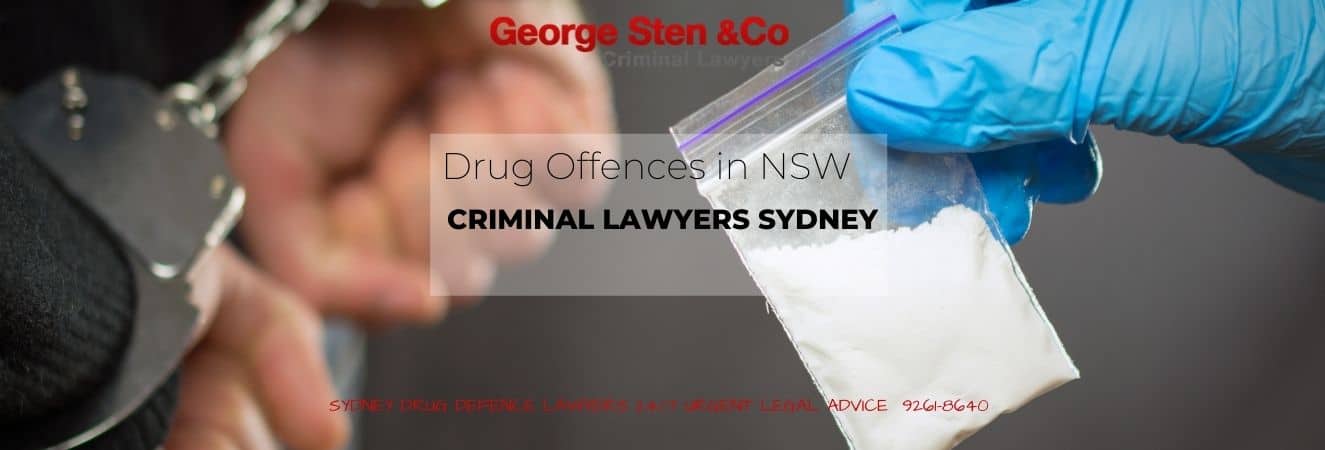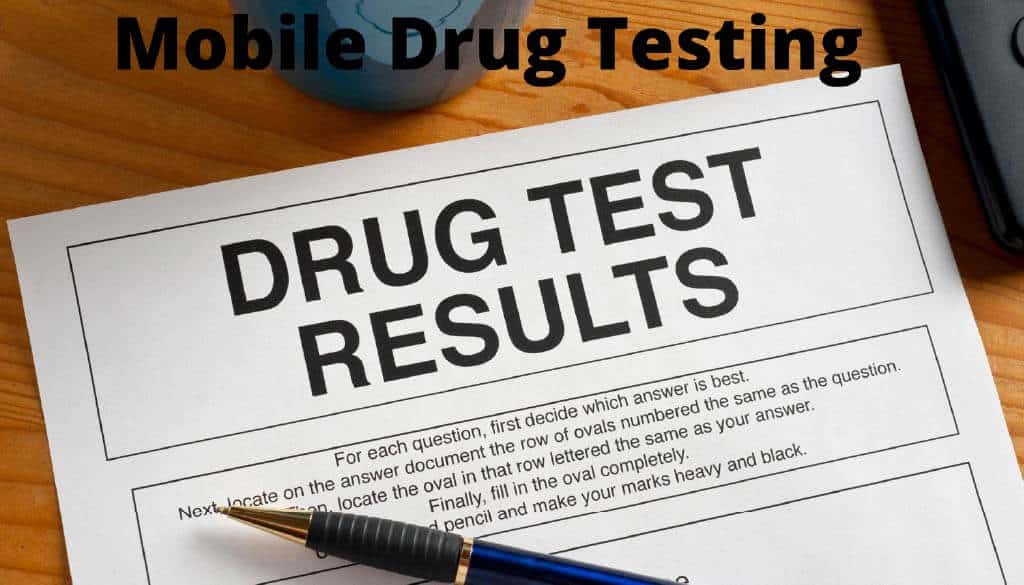- Highest Quality Legal Defence
- 0412 423 569
- 24 hr service
- (02) 9261 8640 緊急案件!Urgent Call
- Make Booking
Mobile Drug Testing NSW

MDT- Mobile Drug Testing Drug Driving Offence DUI
1. Mobile Drug Testing Introduction
The NSW police force has the right to randomly drug test drivers. In early 2016, the police launched a campaign highlighting the growing presence of mobile drug testing capabilities.
If you have been charged with a driving under the influence of drugs offence, you should contact a Criminal Lawyer at George Sten & Co immediately. With over 50 years of experience specialising in criminal law, George Sten & Co will help you achieve the best court outcome.
- The legislation
The law, which governs mobile drug testing, is found in the Road Transport Act 2013 (NSW). Part 5.1 of the Act stipulates the concentrations of certain drugs, which are prohibited if you are driving.
Section 114 of the Act refers to Schedule 3, where the rules surrounding procedures for, and the use of evidence obtained from, testing for alcohol or other drug use by drivers and other road users.
Section 3 of schedule 3 grants police the power to conduct random breath testing. A police officer can submit anyone who is driving a car, or sitting in the driver’s seat trying to drive a car or the person sitting in the seat next to a learner driver to a random breath test. A police officer can signal to a drier to pull over for a random breath test. A driver must pull over after being signalled to do so. Failure to pull over can be penalised by up to 10 penalty units, which is equivalent to $1,100.

Section 4 of schedule 3 grants police the power to arrest a person who fails a breath test.
Section 6 permits police to conduct random oral fluid testing for prescribed illicit drugs. Police can randomly require a person to submit one or more oral fluid tests if they are driving a car, or sitting in the driver’s seat trying to drive a car or are the person sitting in the seat next to a learner driver. Similarly to a random breath test, a police officer can signal to have the driver pull over for the test. If they do not pull over when signalled by police, they can be liable for 10 penalty units, which is equal to $1,100. Furthermore, a police officer can require the person being testing to remain at the site where the test to place for a certain amount of time to ensure that the test can be completed. A person must comply with this request from the police. If they do not, they can be liable for 10 penalty units, which is equal to $1,100.
Section 7 states that if a person fails an oral fluid test, or refuses the test or is unable to submit to the test, a police officer may arrest the person without a warrant. However in order to exercise the power to arrest, it needs to appear to the police officer that the device used to take the test indicates that at least one of the oral fluid tests was positive for a prescribed illicit drug or the person refused or was unable to take the test. The police officer can arrest the person with such force as necessary to the police station or another place to detain them and if necessary take the person to a hospital or another place to detain the person for the purpose of them providing a blood sample for further testing.
If a person is arrested under section 7, they may be required to provide an oral sample for testing. If they have attempted to produce an oral sample and are unable to do so, a police officer may require a person to give a blood sample. This blood sample must be taken by an authorised sample taker.
- Mobile Drug Testing – Potential consequences
Drivers who are caught will drugs in their system will face court, can potentially lose their license, be fined and end up with a criminal record.
Courts can impose a fine of 10 penalty units, which is equal to $1,100 and an automatic 6 months driving disqualification.
If the police prove that you were driving under the influence of drugs, you can face fines of up to 20 penalty units, or $2,200 and an automatic 12 month driving disqualification. You may also be sentenced to up to 9 months imprisonment. If it is not your first offence, your penalty will be more significant.
- Why is it a crime to take drugs and drive?
Drugs affect the way that you react to things around you. When you are driving, it is important that you are able to concentrate and react to hazards in certain ways. Taking drugs lead to a dangerous state of mind. Drugs such as cannabis affect your sense of distance and time, reduce your coordination and slow down your ability to react to situations. Stimulants such as cocaine, ecstasy and speed over-stimulate your body, leading to a lack of concentration, risky decision making, blurred vision and hallucinations. These symptoms can be deadly to the drivers and others when on the road. Opiates such as morphine and codeine make you sleepy, slowing down reaction time and making you lose concentration easily. Combining opiates with alcohol makes for a deadly cocktail, multiplying the effect of both drugs at once. Sometimes, doctors will prescribe opiates such as codeine to their patients. Bear in mind that you can still be found guilty of driving under the influence of drugs if you have been prescribed the medicine.
- What if there is a fatal accident?
If there is a fatal incident, police are allowed to take blood and urine samples from those involved. According to section 52A of the Crimes Act 1900 (NSW), if it is found that you have caused a death while under the influence of drugs, you may face up to 10 years in prison. This sentence increases to 14 years if the court finds that you were ‘very substantially impaired’ by the influence of drugs. This is found in section 52A(2) and 52(7) of the Crimes Act 1900 (NSW).
- What to do if you are arrested
If you are signalled to pull over for a mobile drug test, you must pull over. If you don’t you face a hefty fine of up to $1,100.
Mobile drug testing if you are arrested for further testing or for driving under the influence of drugs, you should not resist the police. The legislation allows police to use necessary force to detain you or transport you to a hospital for further testing. Your next step is to get into contact with one of our criminal lawyers at George Sten & Co before agreeing to a police interview. We will guide you through the entire process to achieve the best possible result. Talk to our Drug Driving Lawyers Sydney today! 02 9261 8640

